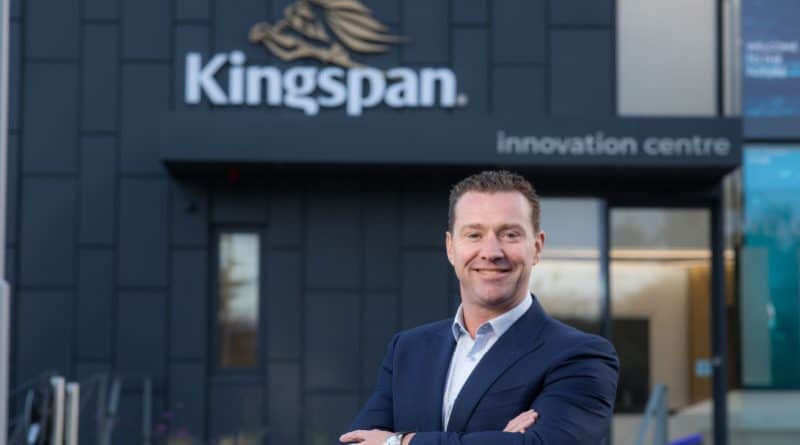Kingspan agrees investment partnership with H2 Green Steel
Kingspan has announced an investment in H2 Green Steel (‘H2GS’), a company pioneering new green production methods for steel manufacturing using hydrogen.
Kingspan is investing in a Series A equity fundraising round due to close later this month. Earlier announced investors in the same fundraising round include Scania, the IMAS Foundation (IMAS Foundation is a sister foundation to the INGKA Foundation—the owner of INGKA Group, who owns and operates the majority of IKEA stores globally) and Vargas.
Kingspan expects to ultimately be a single-digit minority shareholder alongside a similarly minded forward-thinking group of investors who wish to catalyse a transition to low-carbon steel. Kingspan’s investment also reflects an intention to enter into a long-term supply agreement with H2GS, to supply a substantial share of Kingspan’s future steel requirements. Kingspan is the first building materials company globally to make a commitment to procure H2 Green Steel at scale.
The building and infrastructure sectors are the biggest users of steel, accounting for 52% of global demand, compared to 12% from the car industry. Steel accounts for 7% of emissions emitted globally.
The new source of steel is an important element in Kingspan’s Planet Passionate sustainability strategy, an industry-leading decarbonisation programme with a goal to halve carbon intensity in Kingspan’s primary supply chain, and to reduce its manufacturing carbon emissions to as close to zero as technically possible.
Gene Murtagh, CEO of Kingspan Group said: “The building industry is a major user of steel, and steel production is a major source of carbon emissions, it is therefore clear that Kingspan’s Planet Passionate commitment to reduce emissions in its primary supply chain must include a new model of steel production. We have set ourselves the challenging target of reducing emissions from the primary raw materials we use in manufacturing by 50% by 2030, and H2 Green Steel offers a compelling route to achieving this goal. We recognise that for companies to make a meaningful contribution to address the climate crisis they need to be prepared for radical thinking and actions, and our determination to transform our supply chain reflects this.”
H2GS’s production process replaces coke and coal with green hydrogen to achieve an almost a totally CO2-free steel product. The process abates about 95% of the CO2 emissions associated with traditional blast furnaces steel makers: one tonne of H2GS steel will emit less than 0.1 tonne of CO2 compared to more than two tonnes of CO2 emitted producing a traditional tonne of steel.
The green hydrogen gas is produced by electrolysis using electricity generated from hydropower and wind power which is plentiful in the Boden-Luleå region in northern Sweden where H2GS is constructing the world’s first large-scale green steel production site.
The total financing for the first phase of the project amounts to approximately €2.5bn, the majority of which will be financed through green project financing, and Kingspan will be an early stage equity investor. Production will commence in 2024, and by 2030 the plant will be producing 5m tonnes of green steel annually. Henrik Henriksson, currently CEO of Scania (VW-Group), will lead the company from 1 May 2021.
Moving to use of only low emissions steel would see Kingspan reduce embodied carbon in its insulated panel products by approximately over 45%. It would also make a substantial contribution towards Kingspan’s 2030 goal of cutting scope 3 emissions from its supply chain by 50%, by delivering up to a 35% reduction in the Group’s scope 3 emissions.
A total shift to green steel will take time, and Kingspan will continue to buy steel from other current supply chain partners, but the clear environmental benefits of these new production methods mean Kingspan will be encouraging and supporting all its steel suppliers’ efforts to decarbonise.
65% of Kingspan’s business revenue comes from the sale of its insulated panels, which sandwich high-performance insulation between steel panels for use on building facades. With a typical metre of insulated panel using around 8 kgs of steel, the quantum of impact that green steel procurement could have is self-evident.
Carl Erik Lagercrantz, Chairman of the Board of H2 Green Steel said: “We welcome this partnership with Kingspan, a company which like our other partners has prioritised and shown leadership in supporting sustainable economic development. Steel is a vital input in many industry verticals, but the extent of its contribution to emissions from the building and infrastructure sector is not well understood, and green steel will be an important component as it seeks to decarbonise. This will be a first investment and long-term supply partnership with a company in this space, and reflects the depth of demand we see for the steel we will be producing.”
Earlier this month Kingspan published its inaugural “Planet Passionate” Sustainability Report, reviewing the first year of progress in the 10-year strategy it launched in December 2019. In 2020 Kingspan reduced emissions from operations by 5.2%, a first step towards net zero carbon manufacturing by 2030 with the intention of reducing absolute emissions to the lowest possible level. Insulation products sold by Kingspan in 2020 will save an estimated 164m tonnes of CO2e over their lifetime.

